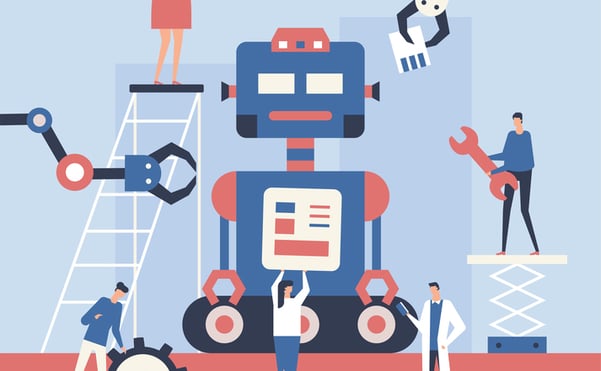Generation Z is disrupting recruiting, training, managing, and more in 2019 and beyond.

Generation Z is entering the workplace. Because of their high-tech and hyper-connected upbringing, they will bring a new set of behaviors, expectations, and preferences into the workplace.
Here are seven changes that Generation Z employees will create.
1. Wider Generational Gap at Work
Seventy-seven percent of Generation Z say having a Millennial manager is their preference over Generation X or Baby Boomers; this is an increase from 67 percent in 2017.
The workplace entrance of Generation Z will only increase the complexity of managing and working across generations, especially considering that more than 75 percent of workers identify "managing multigenerational teams" and "different work expectations across generations" as challenges.
Organizations must prioritize generational training to ensure the generational gap at work doesn't continue to expand and result in poor communication, collaboration, engagement, and more.
2. Increased Desire for Work-Life Harmony
Twenty-eight percent of young employees are frequently or constantly feeling burned out at work, a 7 percent increase over older generations. More specifically, seven in 10 Millennials experience at least some burnout at work.
Helping Generation Z strike the appropriate harmony between work and life will be critical. In fact, burnt-out employees are 63 percent more likely to call out sick and three times as likely to quit. Read this for some practical ways to retain Generation Z using better work-life harmony.
3. Blend of High-Touch and High-Tech
More than 90 percent of Generation Z prefer to have a human element to their teams, either working solely with innovative co-workers or with co-workers and new technologies.
Even though Generation Z is the first fully digital generation, they want human elements at work. In fact, 72 percent of Generation Z want to communicate face-to-face at work. And the top two most important factors for Generation Z at workare "supportive leadership" and "positive relationships at work."
For Generation Z, technology is a must, but it's not enough. Serve up the technology they expect while delivering the human element they crave.
4. Evolved Approach to Learning and Development
Seventy-six percent of Generation Z professionals feel that the skills necessary in today's workforce are different from the skills necessary in past generations.
For the generation that is younger than Google, they approach problem-solving and knowledge-sharing much differently than previous generations. Forty-three percent of Generation Z learners prefer a fully self-directed and independent approach to learning. Microlearning platforms, like 21mill.com, are the ideal way to train Generation Z.
Read this to learn how to effectively train the next generation.
5. Video Impact on Recruitment and Employer Branding
Generation Z's top platform to learn more about a company is YouTube, followed by Instagram, Facebook, Snapchat, LinkedIn, Twitter, and then Glassdoor.
Generation Z's job search approach is a lot different from Millennials', who prefer to use employment websites such as Indeed and Monster followed by specific company employment websites. YouTube is a must for organizations wanting to build a strong employer brand in the eye of Generation Z talent.
6. More Frequent Feedback
Sixty percent of Generation Z want multiple check-ins from their manager during the week; of those, 40 percent want the interaction with their boss to be daily or several times each day.
More frequent and better feedback can improve retention. Two-thirds of Generation Z (versus less than half of Millennials) say they need feedback from their supervisor at least every few weeks in order to stay at their job.
Feedback delivered to Generation Z should be prompt (as close to the behavior as possible is ideal), swift (one sentence or an emoji will suffice), and tracked (using a service like 15Five can help with this).
7. Expanded Importance of Diversity and Inclusion
Sixty-three percent of Generation Z feel it is most important to work with people with diverse education and skill levels; an additional 20 percent think that having people of different cultures (ethnicities or origins) is the most important element to a team.
Not only does diversity and inclusion drive company performance and enhance innovation, but it is also instrumental in the recruitment and retention of next-generation talent. Seventy-seven percent of Generation Z said that a company's level of diversity affects their decision to work there. And 69 percent of Millennials employed at a diverse organization said they would stay with their employer beyond five years, compared with 27 percent not employed at a diverse organization.
Read this for five ways to create an inclusive culture.
(Full disclosure: I am a partner at 21mill.com.)
As a Millennial and Generation Z keynote speaker and trainer, I help companies lead, engage, and sell to the emerging generations. If you'd like help solving tough generational challenges inside your organization, click here.





